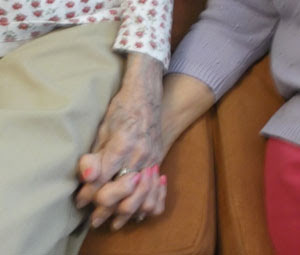While it is true that we are all living longer, there are some steps you can take to help make those years healthier
than ever. The National Institute of
Health recommends that seniors incorporate the following habits into their
daily lives: eat a balanced diet; keep your mind and body active; do not smoke;
get regular checkups; and practice safety habits to avoid accidents and prevent
falls.
The Family Doctor website also offers some
commonsense advice on how even small changes in your lifestyle can improve your
health even if you are already a senior.
Their primary recommendation is to add physical activity to your daily
life and eat food that is enriched with fiber.
By increasing your daily physical activity,
it will help improve the strength of your bones and muscles. In addition we know that stronger muscles can
help to prevent falls, and in the event you do experience a fall, those stronger
bones are less apt to break.
Another benefit to daily physical
activity is that your brain also benefits.
The article cites studies that indicate people who regularly exercise
are better able to make decisions.
Furthermore, even if you have never exercised on a regular basis, the
experts say the benefits outweigh the risk of an exercise-related injury. By daily exercising, you can help improve
many chronic health problems such as diabetes and heart disease.
Seniors new to exercising should
consult their health care provider before they begin. Once they are given the go ahead, they need
to start slowly. Walking is one of the
easiest exercises to do and experts recommend breaking up 30 minutes of daily activity
into two or three increments. Consider
walking for 15 minutes twice a day or do 10 minutes 3 times a day. Strength training also offers seniors
benefits but again the suggestion is to begin slowly. Start with 1 or 5-pound weights and do a few exercises
at a time. Resistance bands are also easy
to use and can help to strengthen upper arms and leg muscles.
Lastly the article suggests increasing
the fiber in your diet; it can improve your health in a number of ways. Fiber gets your colon working better and reduces
the risk of heart disease, type 2 diabetes and cancer. In addition it may help to lower cholesterol
levels.
This post is for information purposes
only and should not be used as a substitute for seeking medical advice.
MorningStar of Sparks’ unique mission
statement “to honor, to serve, to invest” sets us apart from other senior
communities. Committed to creating a
true home for residents within a gorgeous setting, our foundation is built on
honoring God, valuing our seniors and hiring staff with a felt calling to
serve. We invite you to schedule a visit
to learn more about our exceptional senior living.
Sources:nlm.nih.gov/medlineplus/healthyaging.html,
familydoctor.org/familydoctor/en/seniors/staying-healthy/good-health-habits-at-age-60-and-beyond.html




